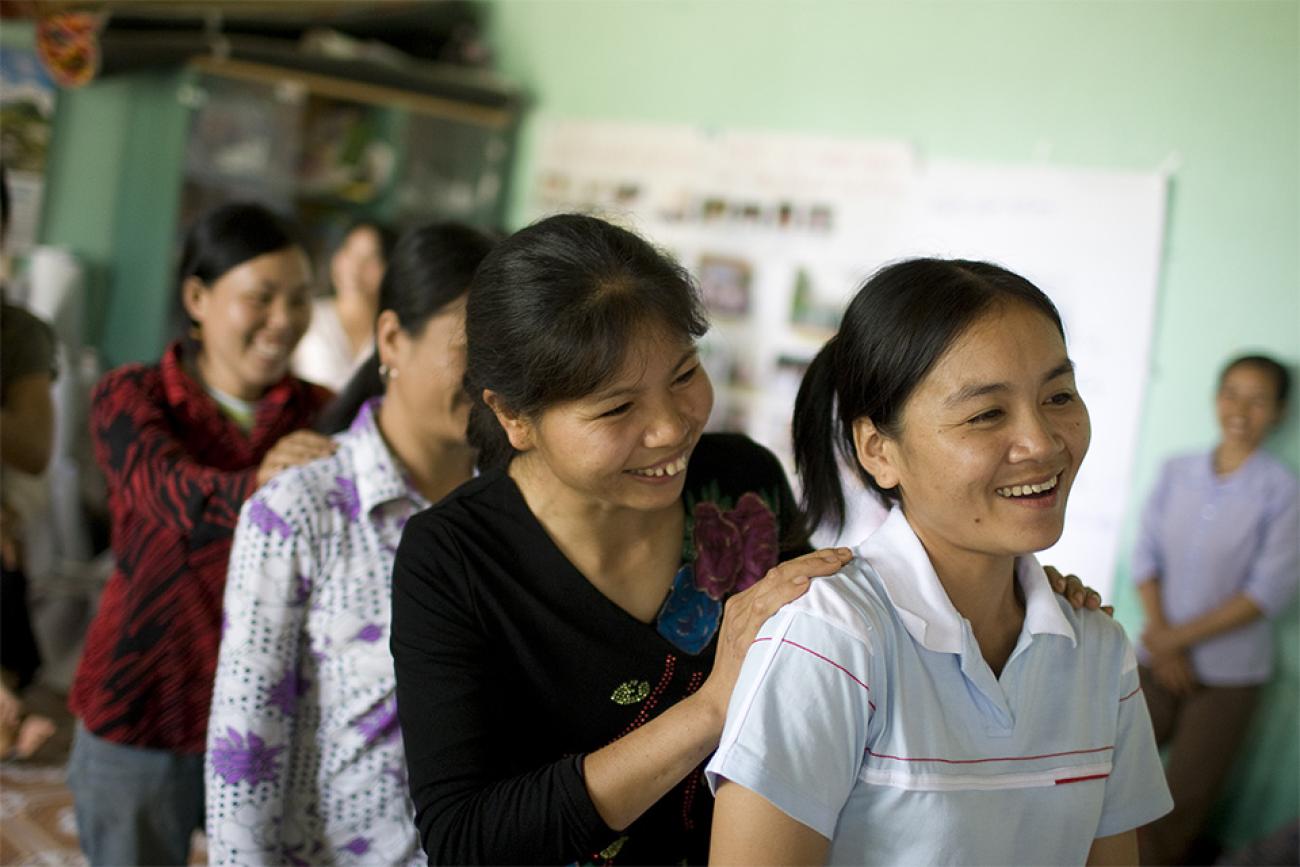The intense fight trampled at home and so with family relationships.
Duy and Lien (not their real names) are married, both live with HIV and reside in Dien Bien Phu City. Lien is the stronger economic contributor and helps maintain the family's livelihood. Battling with severe side effects of antiretroviral therapy (ART), Duy spends most of his time taking care of household chores and children at home. Their two children are free from HIV as Lien adopted anti-retroviral (ARV) treatment during pregnancy and breastfeeding.
The family lives on the land that Duy inherited from his father. His inheritance is legally registered. The land had been equally divided and inherited by Duy, the son of his elder brother, and his two elder sisters. They all built houses on the inherited land and lived next to each other. Since knowing their HIV status, the relatives ostracized Duy's family. They labelled Duy as "less competent" and "socially disconnected" because he needed to stay home most of the time due to his health and physical condition.
Unfortunately, this year a government urban development project ignited more tensions and deepened the rift in the family.
The government collected a portion of their land for an urban development project with new road construction in Dien Bien Phu City. A sum of money was distributed as compensation for the land the government acquired. However, the reconstruction altered the pathway to the properties on the land. Duy's two sisters demanded a larger share of the compensation and a resizing of the plot of his land.
Duy's two sisters trooped into their house, physically harmed Lien and verbally insulted Duy and Lien by shouting about their HIV status in front of their two small children. The fierce quarrel ravaged their home, so as their dignity. Being driven into a corner, Duy and Lien sought help from representatives of local mass organizations to resolve the dispute through civil litigation.
HIV-related stigma and discrimination, including violence, threatened Duy's property rights and exacerbated the pre-existing vulnerability. According to Stigma Index 2020-2021, more than 4% among 1623 respondents in Viet Nam reported experiencing rights abuses in the past 12 months, and 45% reported not knowing any law protecting people living with HIV from being discriminated against [1].
“We have been receiving, through the hotline service, stories of people living with HIV being subject to stigma, discrimination and violence, including verbal and physical violence,” said Nguyen Anh Phong, a representative of the Viet Nam Network of People Living With HIV (VNP+). Phong and his team have been operating a hotline to provide counseling and support to community members for many years. “People living with HIV and the wider community both need to speak up and take action to address stigma and discrimination. You are not alone. We are not alone.” He emphasized.
Putting an end to stigma and discrimination around HIV is the key to stopping violence against people living with and at higher risk of HIV and ensuring everyone's equal rights, such as property ownership, education, health care, work, access to justice, privacy, family, bodily autonomy and other rights. Equality needs to be upheld to empower key HIV populations to live with dignity and respect.
[1] Stigma Index. PLHIV Stigma Index 2.0 Viet Nam Country Report. Available at: https://www.stigmaindex.org/country-reports/#/m/VN
*Community members featured in this photo have given UNAIDS consent to use their image for the purpose of public advocacy for the HIV response.




